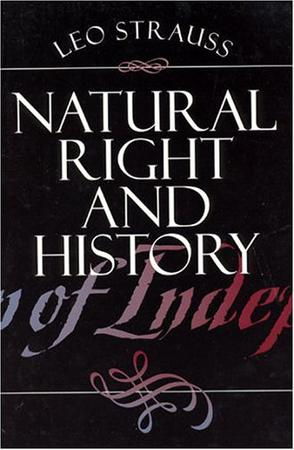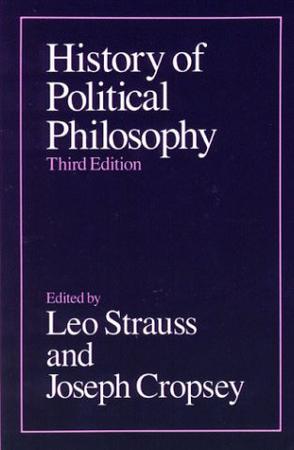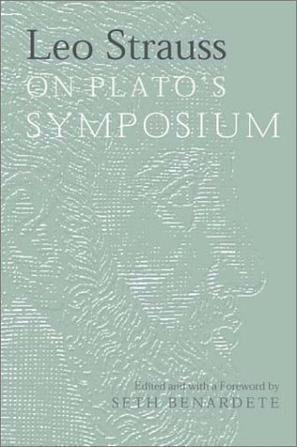欢迎来到相识电子书!
标签:LeoStrauss
-
Natural Right and History
The problem of natural right is one of the most controversial and important issues in contemporary political and social philosophy. In this classical work, Leo Strauss examines the status of the issue in contemporary thought and argues that there is a firm foundation in reality for the distinction between right and wrong in ethics and politics. On the centenary of Strauss's birth and the fiftieth anniversary of the Charles R. Walgreen Lectures at the University of Chicago, where Strauss first presented the work, the book remains as controversial and essential as ever. -
The Rebirth of Classical Political Rationalism
This concise and accessible introduction to Strauss's thought provides, for wider audience, a bridge to his more complex theoretical work. Editor Pangle has gathered five of Strauss's previously unpublished lectures and five hard-to-find published writings and has arranged them so as to demonstrate the systematic progression of the major themes that underlay Strauss's mature work. "[These essays] display the incomparable insight and remarkable range of knowledge that set Strauss's works apart from any other twentieth-century philosopher's."--Charles R. Kesler, National Review -
History of Political Philosophy
Political philosophy is the study of fundamental questions about the state, government, politics, liberty, justice, property, rights, law and the enforcement of a legal code by authority: what they are, why (or even if) they are needed, what makes a government legitimate, what rights and freedoms it should protect and why, what form it should take and why, what the law is, and what duties citizens owe to a legitimate government, if any, and when it may be legitimately overthrown—if ever. In a vernacular sense, the term "political philosophy" often refers to a general view, or specific ethic, belief or attitude, about politics that does not necessarily belong to the technical discipline of philosophy. Three central concerns of political philosophy have been the political economy by which property rights are defined and access to capital is regulated, the demands of justice in distribution and punishment, and the rules of truth and evidence that determine judgments in the law. Contents: 1 History of political philosophy 1.1 Antiquity 1.2 Medieval Islam 1.3 Medieval Europe 1.4 European Renaissance 1.5 European Age of Enlightenment 1.6 Industrialization and the Modern Era 2 Contemporary political philosophy 3 Influential political philosophers 4 References 5 See also 6 Further reading -
Leo Strauss On Plato's Symposium
From Library Journal In fall 1959, Strauss offered a course at the University of Chicago titled "Plato's Political Philosophy," during which he lectured on the Symposium. It was suggested shortly after that the lectures be reworked and published, and Strauss agreed. Benardete (classics, New York Univ.) worked on the manuscript, but Strauss was not satisfied with the results, and the project languished until 1999, when Benardete picked it up again and completed it. The resulting publication is not only an excellent analysis of, and introduction to, the Symposium but a text that mirrors the mind and skills of a renowned teacher. Strauss provides a detailed and careful reading of the dialog, together with a cogent analysis of its place in Plato's work, the nature of Eros, the tension between philosophy and poetry, and other related topics. This is a valuable addition to libraries that support programs in philosophy and/or political studies. Terry Skeats, Bishop's Univ. Lib., Lennoxville, Quebec Copyright 2001 Reed Business Information, Inc. --This text refers to the Hardcover edition. Product Description The first major piece of unpublished work by Leo Strauss to appear in more than thirty years, this volume offers the public the unprecedented experience of encountering this renowned scholar as his students did. Given as a course in autumn 1959 under the title "Plato's Political Philosophy," these provocative lectures—until now, never published, but instead passed down from one generation of students to the next—show Strauss at his subtle and insightful best. -
回归古典政治哲学
西方思想经典即便都译成了汉语,不等于汉语学界有了解读能力。西学典籍的汉译历史虽然仅仅百年,积累已经不菲,学界的读解似乎仍然在吃夹生饭——甚至吃生米,消化不了。翻译西方学界诠释西学经典的论著,充分利用西方学界整理旧故的稳妥成就,於庚续清末以来学界理解西方思想传统的未尽之业意义重大。译界并非不热心翻译西方学界的研究论著,甚至不乏庞大译丛之举。显而易见的是,这类翻译的选题基本上停留在通史或评传阶段,未能向有解释深度的细读方面迈进。设计这套“西方传统:经典与解释”,旨在推进学界对西方思想大传统的深度理解。选题除顾及诸多亟待填补的研究空白(包括一些经典著作的翻译),尤其注重选择思想大家和笃行纯学的思想史家对经典的解读。
热门标签
下载排行榜
- 1 梦的解析:最佳译本
- 2 李鸿章全传
- 3 淡定的智慧
- 4 心理操控术
- 5 哈佛口才课
- 6 俗世奇人
- 7 日瓦戈医生
- 8 笑死你的逻辑学
- 9 历史老师没教过的历史
- 10 1分钟和陌生人成为朋友





